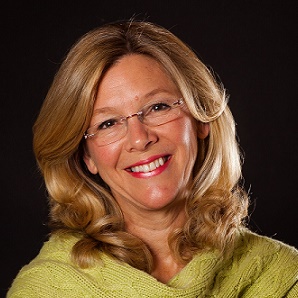Holistic Counseling on the Rise
 Not surprisingly, recent trends in the field of psychology have paralleled developments in the field of Complementary and Alternative Medicine (CAM) in the following way: The methods used to heal patients both physically and psychologically are increasingly holistic in their approaches. Research suggests that holistic techniques used to reduce stress, anxiety and depression are being utilized by patients and clients more than ever; subsequently replacing what used to be the exclusive purview of pharmaceutical remedies. Even the United States military has showed a marked increase in the use of methods such as hypnosis, relaxation exercise, meditation, spiritual healing and energy healing--according to a study done by the Samueli Institute in Alexandria, Virginia. Their leading-edge research reported that of the study’s 16,000 active duty participants, 45% had used at least one means of holistic healing in the year preceding the study.
Not surprisingly, recent trends in the field of psychology have paralleled developments in the field of Complementary and Alternative Medicine (CAM) in the following way: The methods used to heal patients both physically and psychologically are increasingly holistic in their approaches. Research suggests that holistic techniques used to reduce stress, anxiety and depression are being utilized by patients and clients more than ever; subsequently replacing what used to be the exclusive purview of pharmaceutical remedies. Even the United States military has showed a marked increase in the use of methods such as hypnosis, relaxation exercise, meditation, spiritual healing and energy healing--according to a study done by the Samueli Institute in Alexandria, Virginia. Their leading-edge research reported that of the study’s 16,000 active duty participants, 45% had used at least one means of holistic healing in the year preceding the study.
What is Holistic Counseling?
Holistic Counseling is an approach which helps clients to heal by taking the entire human being and their life experiences into consideration for assessment and treatment purposes. In other words, where traditional counseling methods consider the psychological ramifications of issues and behaviors; holistic counseling assesses and treats from physical and spiritual contexts--as well as a psychological or mental ones.
It is important to note that there is a difference between a licensed counselor who takes a holistic approach and someone who “counsels” or “coaches” clients by using holistic techniques. The former is someone who has attended and graduated from an accredited college(s) with a minimum of a Master’s Degree in Counseling/Therapy/Social Work and who has met all the internship and licensing requirements of the state in which they live. After licensure, they have then chosen to incorporate treatment methods which are holistic in nature. They can hold additional certifications and degrees in holistic areas, but they practice under their state licenses.
The latter is a person who may or may not have attended college and one who may or may not have achieved certification or earned specialized credentials in the fields in which they offer assistance. Some use the title Holistic or Spiritual Counselor, Life Coach, etc.
- Physical Aspects: Holistic counselors look at a client’s presenting symptoms and issues and evaluate how the physical body is involved and affected with the goal of facilitating a sense of physical well-being. Counselors have a spectrum of areas in which they can be licensed and specialize; for example: Reiki-based treatment, yoga instruction, energy healing, chiropractic techniques, massage therapies and applied acupuncture/acupressure—just to name a few. Many offer their clients assistance with dietary issues, weight management, vitamin and mineral supplementation, exercise and the development of proactive health measures.
- Spiritual Components: The holistic counselor acknowledges that the human spirit is intricately involved in the healing of the total person—mind, body and soul. Some are denominationally pre-disposed to one religion or another; but an increasing number choose to incorporate the spiritual aspect in a generalized way. Albeit, some holistic counselors choose to let the client assert and superimpose their personal orientation onto the spiritual work that is done in the therapeutic environment.
 Profiled expert Marianne Clyde is a Licensed Marriage and Family Therapist (LMFT) practicing in Warrenton, Virginia, and founder of the Marianne Clyde Center for Holistic Psychotherapy. She is world traveler, speaker, author of the books Peaceful Parenting: 10 Essential Principles and You Are One in a Million: The Art of Asking Questions That Produce Results as well as the creator of the meditation CD, Moments of Mindfulness. As an ordained minister, she feels strongly about the role that the human spirit plays in healing saying, “You can’t change your behavior and not change your emotions --your spirituality.” When asked to describe her role in her clients’ lives she responded,
Profiled expert Marianne Clyde is a Licensed Marriage and Family Therapist (LMFT) practicing in Warrenton, Virginia, and founder of the Marianne Clyde Center for Holistic Psychotherapy. She is world traveler, speaker, author of the books Peaceful Parenting: 10 Essential Principles and You Are One in a Million: The Art of Asking Questions That Produce Results as well as the creator of the meditation CD, Moments of Mindfulness. As an ordained minister, she feels strongly about the role that the human spirit plays in healing saying, “You can’t change your behavior and not change your emotions --your spirituality.” When asked to describe her role in her clients’ lives she responded,
I am a validator, cheerleader, encourager. I ask questions so that people can discover who they are and answer the questions themselves. I create an environment where people are free and they can find the truth that is deep within them. It’s simple but it’s not easy. I don’t let people get away with clichés or “Christianeze;” I help them to get clarity. We begin wherever the client is within their spiritual journey: Everyone believes something. I work with what people bring me. I then ask them things like: Is that working for you? Does that feel right for you? Or does it give you a stomach ache? We explore what their beliefs are. I live what I am working with my clients on. I have to follow the truth that I perceive, so people can do that with me.
- Psychological or Mental Components: Naturally, the holistic counselor will be cognizant and attentive to the mental condition of the client. Skills and knowledge acquired through academia and internships help the practitioner to sort through symptoms and behaviors to assess issues and determine plans of action or direction. The holistic counselor does not abandon historically employed methods; they choose, however, to integrate them into their supplemental observations based on a physiological and spiritual assessment of the client.
In Conclusion...
A holistic counselor is conscious of clients in their totality; they take an integrative approach to healing the mind. Their work takes them into the multiple dimensions of human experience; the physical, the spiritual and the psychological. Ultimately, they seek to heal by helping their clients to break free from destructive behaviors and enjoy a new and improved state of mental, spiritual and physical health. These counselors do not consider the client as damaged and in need of repair; they instead focus on helping the client release the spiritual perfection which lies within. In Marianne’s words:
The most important thing I tell clients as soon as they come to me is that, “There is nothing wrong with you. You are already whole, perfect and complete. There are just some little pebbles stopping the flow in your life. Those pebbles (Ok…some are boulders.) are beliefs and behaviors that might have been true at some time in your life, but are no longer true and are not working for you. It’s our job to figure out what they are, change them and get you unstuck.
































